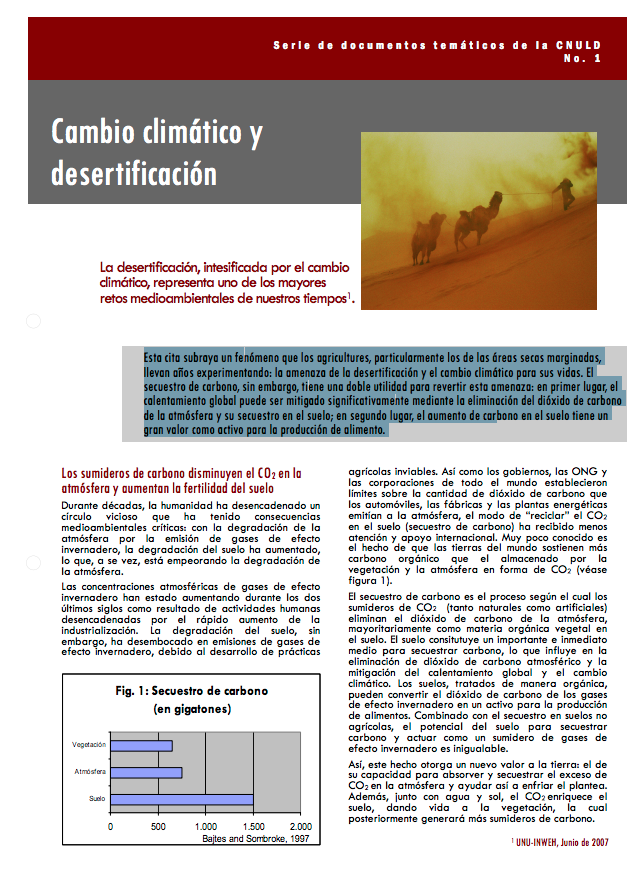Cambio climático y desertificación
Esta cita subraya un fenómeno que los agricultures, particularmente los de las áreas secas marginadas, llevan años experimentando: la amenaza de la desertificación y el cambio climático para sus vidas. El secuestro de carbono, sin embargo, tiene una doble utilidad para revertir esta amenaza: en primer lugar, el calentamiento global puede ser mitigado significativamente mediante la eliminación del dióxido de carbono de la atmósfera y su secuestro en el suelo; en segundo lugar, el aumento de carbono en el suelo tiene un gran valor como activo para la producción de alimento.


